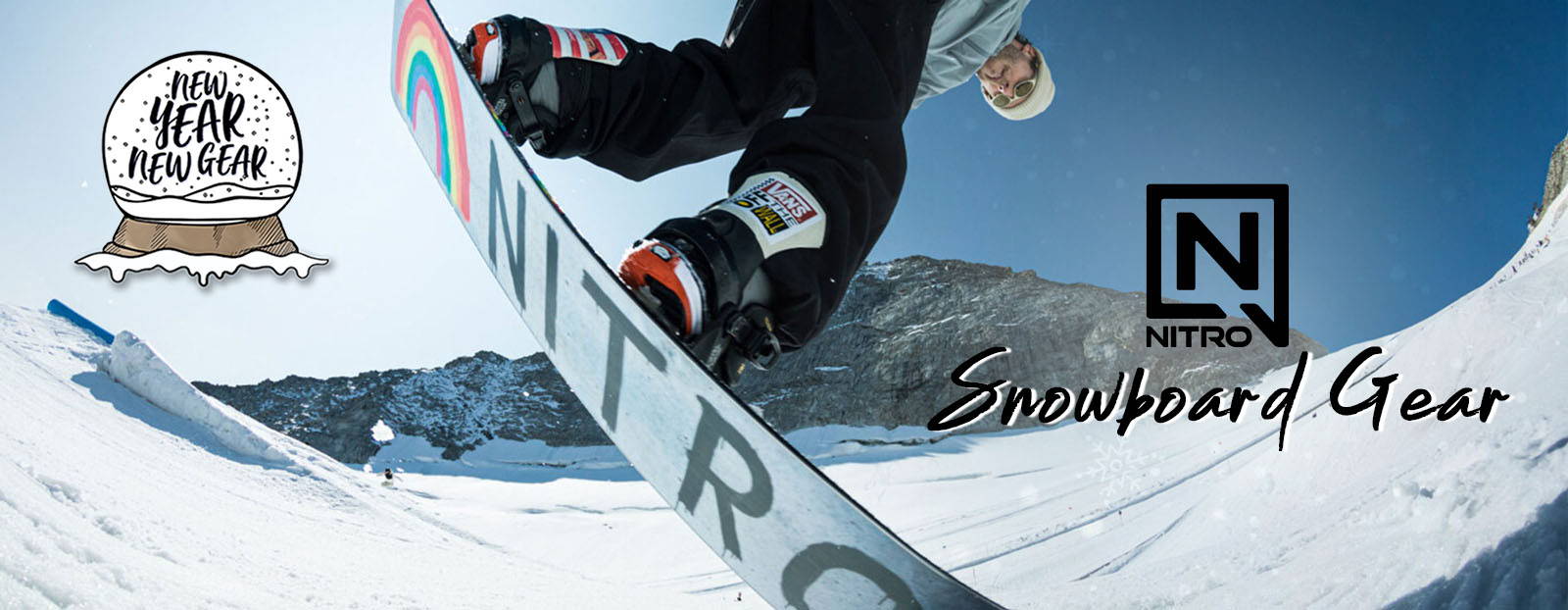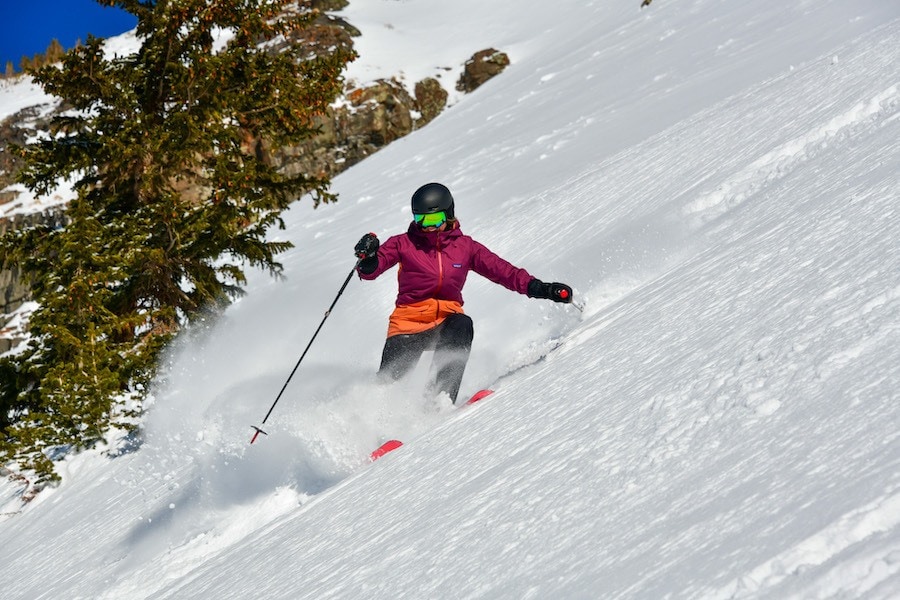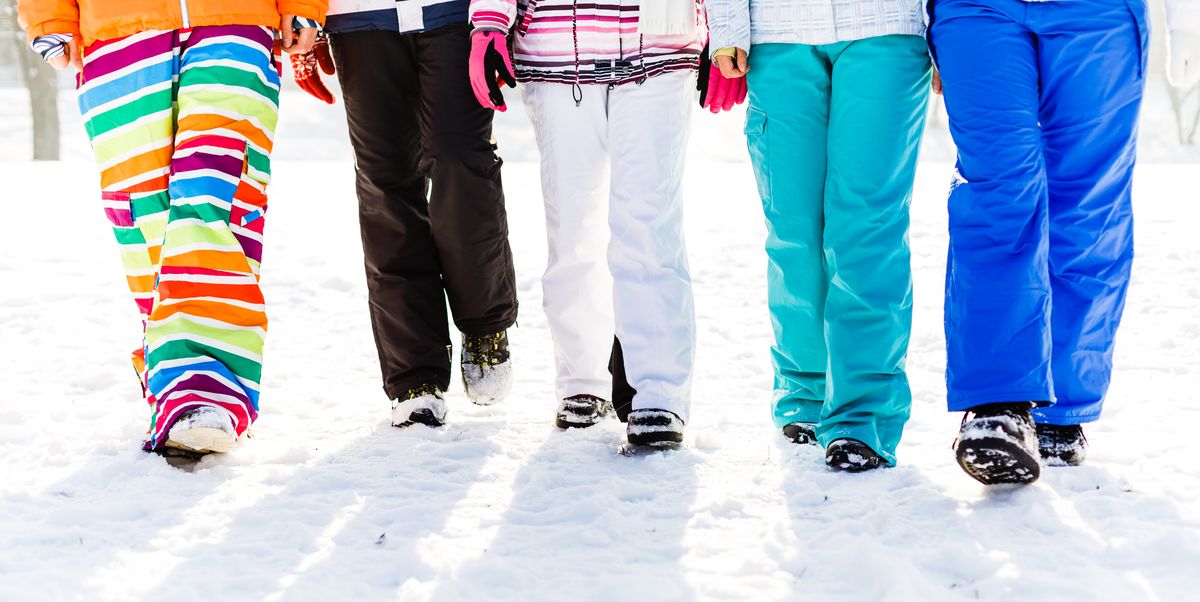
Snowboarding is a sport that many people have fun and enjoy, but it can also be expensive. When planning a trip to ski, you should be aware of the costs involved so that you can prepare accordingly.
Costs for snowboarding trips can vary from $40-$800 for a half day private lesson, or between $20-400 for a group. Transportation, food, and lodging are all costs that you'll have to consider.
Consider ski and snowboarding schools if you want to save money. These are the best way to learn skiing and snowboarding basics, as they can be cheaper than a lesson in a resort.
Choose between the beginner or advanced skiing or snowboarding courses. Both courses include a ticket for the lift and a safety helmet.

You can also take a lesson with a professional. Although they are expensive, these lessons can be very effective in teaching you how to navigate the slopes efficiently and safely.
Some ski and snowboarding schools offer discounts when you purchase multiple sessions. This is an excellent way to learn how to ski and snowboard faster, as well as save money.
The cost of snowboarding lessons isn't always cheap, but they can be worth it in the long run if you want to improve your skills and have a great time on the mountain. You'll have to compare the prices of different resorts before you make a choice.
Vail and Beaver Creek have some of most expensive lessons, costing adults between $45-75 for a full day. Steamboat Springs is a great option for those looking for an affordable option. A one-day lesson costs only $25.
There are a number of different types of lessons available at ski and snowboard resorts, including private, group and semi-private. These lessons, which are usually geared towards beginners and novices, can teach you the basics of snowboarding or skiing in a relatively short period of time.

For example, a beginner ski or snowboarding lesson can teach you how to use the ski lifts and how to safely turn. They can also show you how to pick the right board and boot for your style and skill level.
Other lessons may focus on bumps, park tricks and more. Some instructors specialize in a particular skill, such as snowboarding freestyle or backflips.
Beginners can get started with a half-day session. However, if you're an advanced rider, you may need more time to learn the basics.
A ski or snowboard camp is another option. You'll get more instruction, and you can explore new terrain with other riders. These can be more enjoyable than a standard ski or snowboard lesson.
FAQ
How can I travel light and how do I get there?
When packing for a trip, there is no right or wrong answer. Here are some tips to help you decide what to pack.
-
Only bring what you truly need.
-
Only bring what you plan to actually wear.
-
Do not overpackage yourself with items.
-
You should ensure that you have enough space in your luggage.
-
Always double-check that you've packed everything you need.
-
Make use of the free storage facilities
-
Instead of purchasing bottled water, use reusable water bottles.
-
A backpack is better than a luggage.
-
Walking or cycling is a better option than using public transport.
-
Select the right bag size
-
Avoid carrying bulky items.
-
Prepare for anything.
-
You can't leave any trace.
Are you worried about losing something while you're on the road?
Yes, I often forget stuff. This happens especially when I'm going on a short trip. But I have everything with I, so I never run low.
For example, I always have my passport with me. I also make sure to have enough money for any purchase of tickets.
I also always have my phone charger with me. Also, I have a small bag that I store my other items in.
What should I do if I want to buy travel insurance
Travel insurance is important if your plans include adventure travel. You should ensure that you have coverage for all types and forms of adventure sports.
If you're skiing, for example, it is important to have medical coverage. You should also look into getting coverage for things like theft, loss, and damage.
Consider purchasing cancellation coverage. This covers you from any possible penalties if you cancel your holiday.
Additionally, it is a good idea to ask for emergency evacuation coverage. You can also be taken off the mountain in the event of an avalanche, or another natural disaster.
What should vacationers bring?
You need to know what you want to do on your holiday. This is not about packing clothes. You should also consider where you are going to be staying and for how long.
It is important to consider what kind of activities you want to engage in. You might want to go scuba diving if your destination is exotic. Participating in local festivals or events is a good idea if you're planning on staying somewhere for a longer time.
Tell your loved ones if there are any health concerns so they can plan for you.
Statistics
- Alcoholic beverages with more than 24% but not more than 70% alcohol are limited in checked bags to 5 liters (1.3 gallons) per passenger and must be in unopened retail packaging. (tsa.gov)
- You can use compression sacs or cubes to reduce the volume of your clothes by up to 80%—this is especially convenient for bulky items such as sweaters and jackets. (eaglecreek.com)
- No Checked Bags: No Alcoholic beverages with more than 70% alcohol (over 140 proof), including grain alcohol and 151 proof rum. (tsa.gov)
- Case in point: the private island of Ilha Caldeira, less than seven miles off the coast as part of the Primeiras and Segundas Archipelago, is located within the marine-protected area with 20 percent of the country's intact living coral. (travelandleisure.com)
- That's an 18% jump from 2019, the previous record year. (travelandleisure.com)
External Links
How To
How to plan your next vacation
Planning a trip can involve many things including booking flights, hotel reservations, car rentals, and activities. It involves important considerations like your budget, destination choice, weather forecast, etc.
These points are essential to keep in mind when you plan your next vacation.
We have created a step to guide that will help you plan your next trip. This guide has been compiled using customer feedback as well as our own experience. We hope that by following this guide, you can plan your next vacation without any hassle.
Steps:
-
Plan your Budget - Planning your budget is one of the most important steps in preparing for a trip. Before you can begin to plan where you want to go and what you'd like to do, you should know how much. If you don’t have enough money, it might be necessary to cancel your trip.
-
Book Flights – After setting your budget, you must book your flights. Be sure to get the lowest price flight deal. Also, check if airlines offer any special deals during certain seasons. These deals could help you save a lot of cash.
-
Choose Your Destination - Once you've booked your ticket, the next thing you'll need to decide is where you'd like to travel. Multiple factors will play a role in choosing the destination you choose, such as location (wherever you are), climate (what season), culture (how friendly and affordable it is), cost (how affordable it can be) and cost.
-
Locate Accommodations – After you've chosen your destination, you need to locate accommodations. There are many options for accommodation, from budget hostels to luxurious suites. Your needs and preferences will determine the type of accommodation that you choose. A hotel is not the best choice if you want to be close to the city centre. A homestay might be a better option if you are looking for quieter places far from the crowds.
-
Select Activities and Attractions - Now is the time for you to choose the attractions and activities that you want to include in your itinerary. Depending on your length of stay, you may choose to add or remove activities.
-
Determine your schedule - After you've chosen the attractions and activities that you would like to include in your itinerary, it's now time to create it. To achieve maximum value from your trip, you should stick to a fixed schedule. However, if you're free to move around at your convenience, you can enjoy your trip even more.
-
Create an Itinerary - An itinerary is a list of all information related to your trip. It is important to write down everything you need, from accommodation to meals, to activities to restaurants, and to create a list.
-
Research online - Make sure you do your research before you leave for your trip. To find out what other travellers think about different destinations, read reviews and testimonials. This way, you will be able to plan accordingly.
-
Avoid Overpacking - Too many clothes can make packing a nightmare. Try to bring just three sets of clothes instead of five. You should bring clothing that suits the conditions.
-
Be Prepared - Finally, be prepared! Be prepared before you set off on your trip. You don't want your trip to be ruined by searching for vital documents while you're in transit.